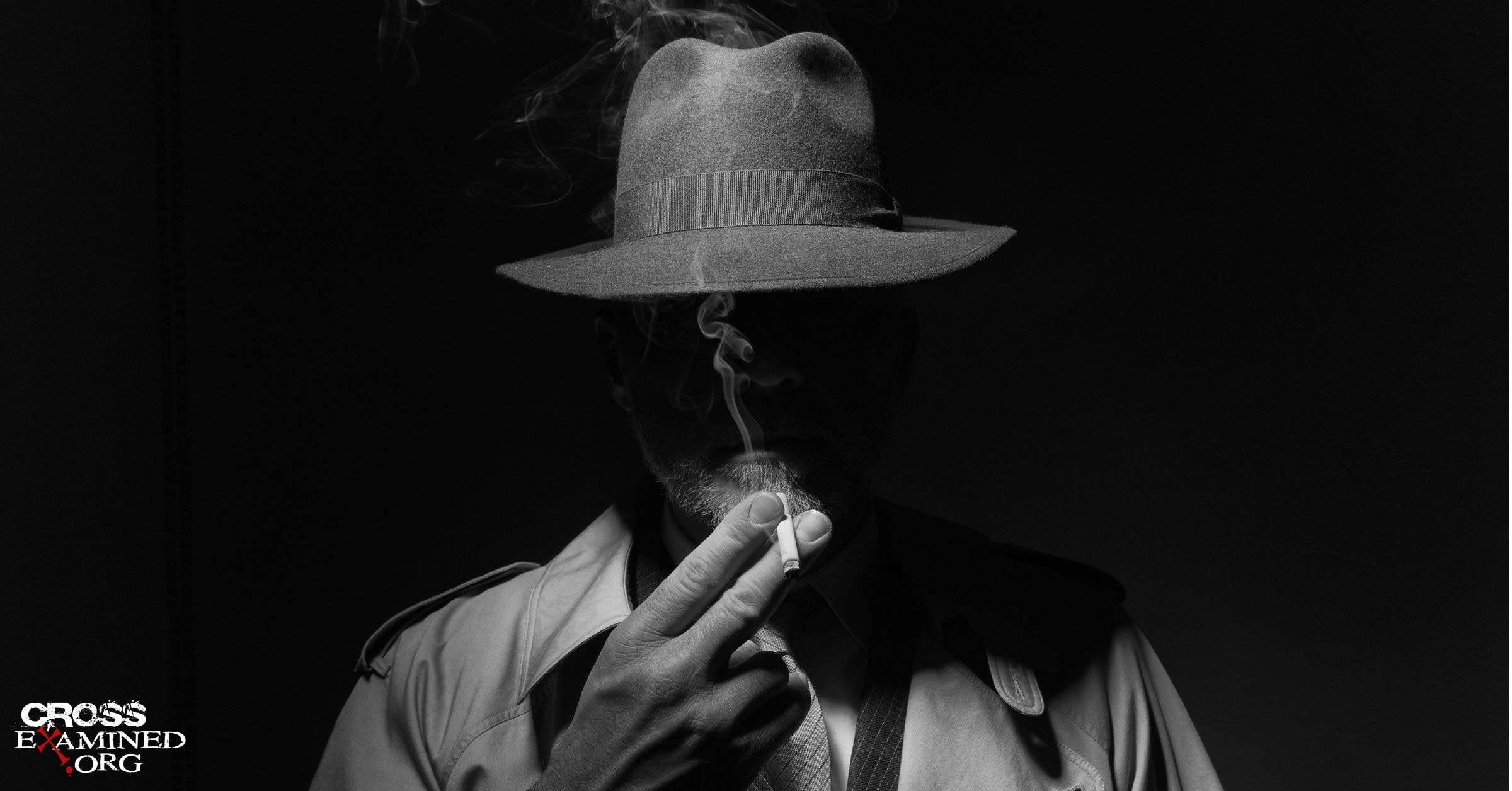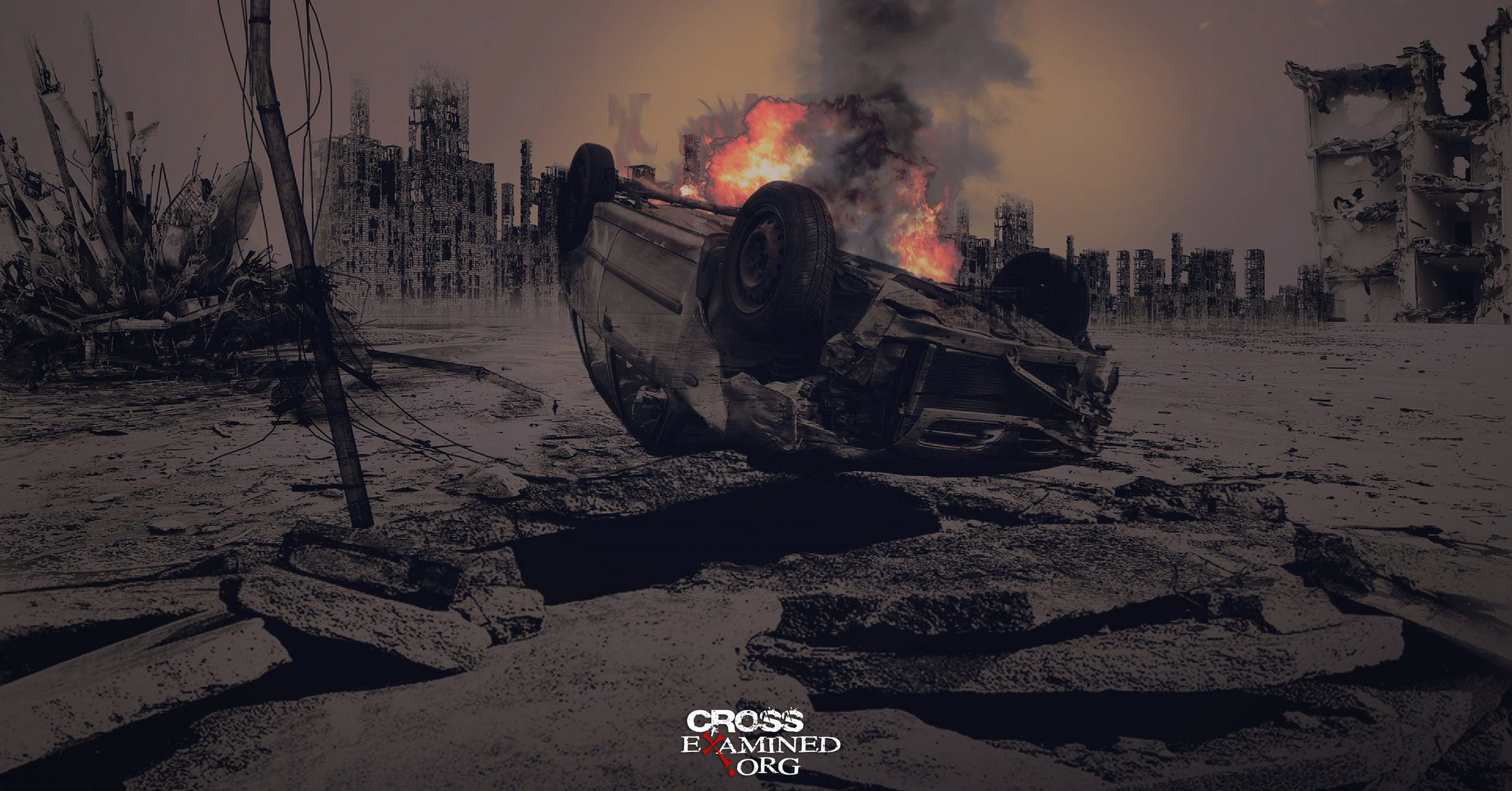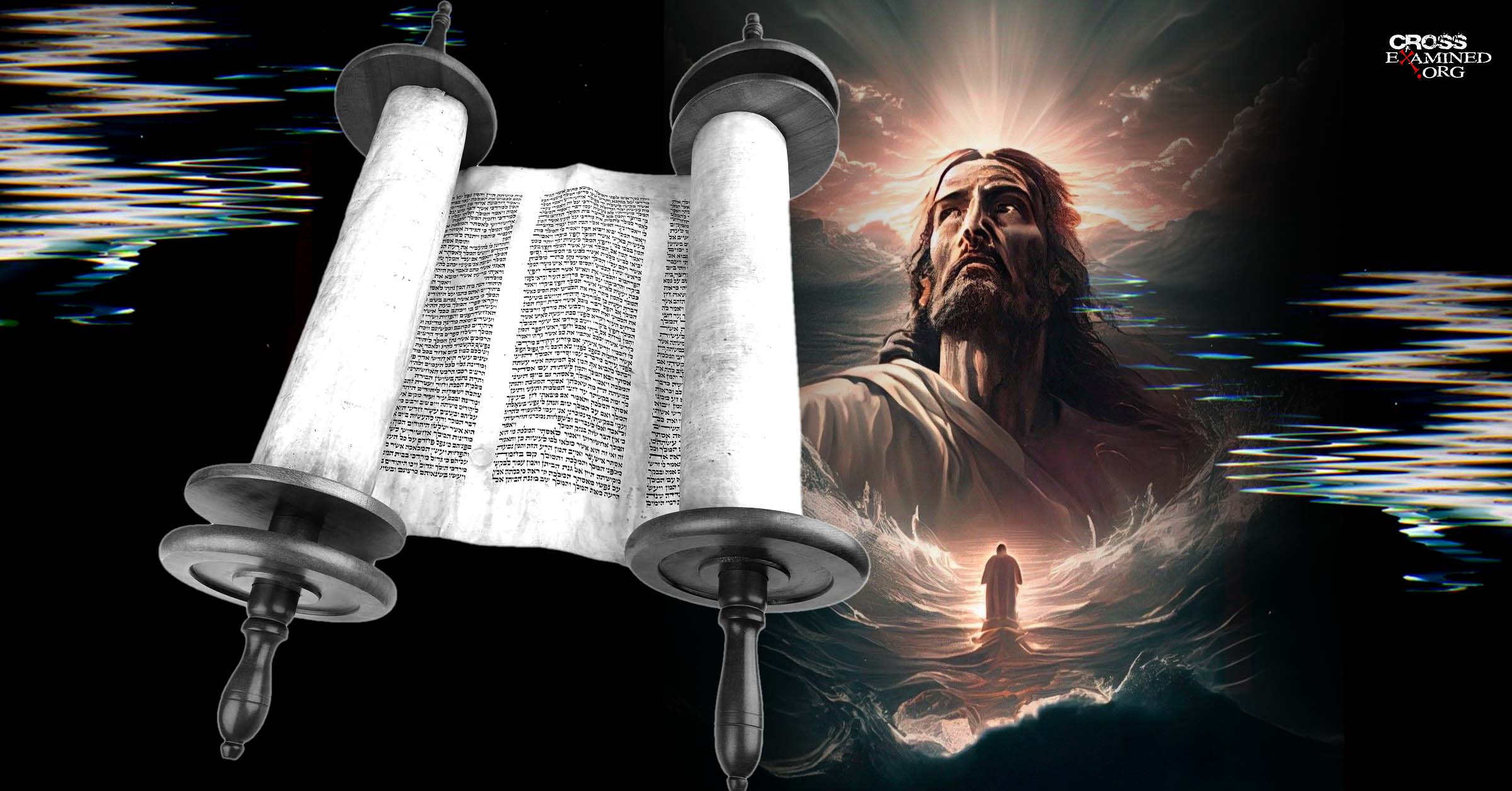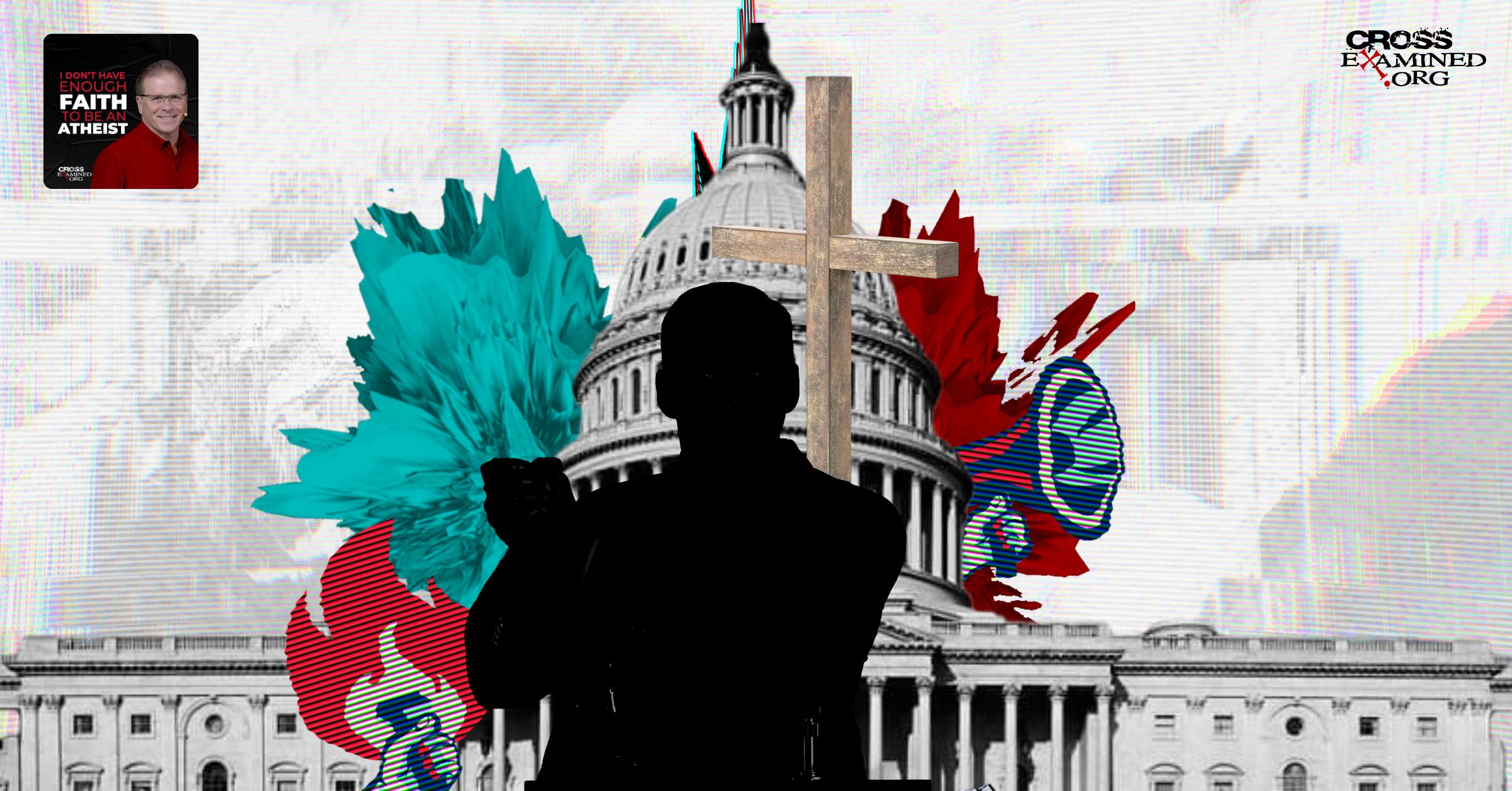How a Cold-Case Atheist Detective Became a Case-Making Christian
I think it may be true,” Jim Wallace said to his wife, Susie. He was lying in bed, staring at the ceiling.
“What may be true?”
“Christianity.” Why did she need to ask? He’d been obsessed with the subject for several weeks now, talking her ears off on multiple occasions. It had all started at Saddleback Church during an otherwise normal Sunday morning service. A friend, a fellow police officer, had been inviting him for months, and he’d finally acquiesced. Susie liked the family to attend church, and although Jim had no use for religion, he loved his wife deeply and placed a very high priority on marriage and family. As for church, he didn’t get it, but he was fine going along for her sake.
Jim managed to ignore most of the sermon, but his ears did perk up when Pastor Rick Warren mentioned some wise principles Jesus taught that could be applied today. He’d described Jesus as “the smartest man who ever lived.” This guy Jesus might have some information I could use workwise, Jim thought. He’d always been open to learning from any ancient sage whose wisdom had stood the test of time. So the following week he dropped $6.00 on a Bible at B. Dalton bookstore and leafed straight to the New Testament Gospels. He wasn’t interested in anything but the red letters. What did Jesus say?
As Jim read, though, he was soon struck by something else. By this time in his career as a police officer and crime investigator, he had interviewed hundreds if not thousands of eyewitnesses and suspects and had read countless written testimonies. The Gospel accounts, he was surprised to note, bore a striking resemblance, not to the mythology or moralistic storytelling he’d always believed them to be, but to actual eyewitness accounts, something with which he was intimately familiar. His investigator’s curiosity was piqued.
Opening an Investigation
Since he’d shown a knack for interviewing early in his career, Jim had received special training in a variety of investigative techniques. One of them, a methodology called Forensic Statement Analysis (FSA), was especially designed to scrutinize eyewitness testimonies to detect deception and other manner of falsification. Wow, Jim thought, wouldn’t it be cool to try to apply this discipline I do at work to one of the Gospels?
He was in his element now. He started with the Gospel of Mark. For a full month, he meticulously picked it apart, hanging on every word, and in spite of deep skepticism going in, ultimately came to the conclusion that the Gospel writer Mark had penned the eyewitness account of the Apostle Peter, exactly what traditional Christianity has held all along. Pressing on, he subsequently reached the conclusion that the other three Gospels also gave every appearance of being exactly what they purported to be—authentic, eyewitness accounts written by men who genuinely believed what they were writing.
Personal Crossroads
This was a wholly unexpected development. At this juncture, Jim’s well-honed drive to uncover truth ran square up against his lifelong aversion to all things religious. The only son of a divorced, cultural Catholic mother and atheist father, Jim had been an avowed atheist all his life. And he was quite happy with it. Religion had always been just plain silly to him, and as a shrewd cop for whom skepticism was a skill that got you home at night, he had a very low threshold for silliness. Christianity might be a useful delusion for some, or an area of weakness for others, but nothing beyond that. Worse, despite his love and respect for Susie as a quiet believer, he’d badmouthed the few people he’d known in the department who were Christians. Now, as a follow-the-facts-wherever-they-lead investigator, he had to contend with the possibility that there might be something to this “garbage” after all.
By now, he was on much more than an intellectual exercise. The Scriptures he’d been examining contained certain claims that were supremely unsettling to a contented atheist. There were supernatural claims, claims about authority, claims about exactly who was God. And some of Jesus’ teachings, if you took them seriously, were devastatingly convicting. What do I do with the claims of Jesus related to his own divinity? And the claims of Jesus related to the nature of my heart?
As an atheist, he’d always felt like he was a good guy. He’d made his own rules for what was appropriate, and according to them, he was living a good life. He wasn’t hurting anybody. He was even devoting his life to stopping the bad guys who were. He didn’t believe in heaven, but if there was one, he was fairly confident he would make it in. But Jesus said differently. Who was right?
“I knew that I was standing on the edge of something profound,” he wrote in Cold Case Christianity.
I started reading the Gospels to learn what Jesus taught about living a good life and found that He taught much more about His identity as God and the nature of eternal life. I knew that it would be hard to accept one dimension of His teaching while rejecting the others. If I had good reason to believe that the Gospels were reliable eyewitness accounts, I was going to have to deal with the stuff I had always resisted as a skeptic. What about all the miracles that are wedged in there between the remarkable words of Jesus?… And why was it that I continued to resist the miraculous elements in the first place?
These were imposing questions, threatening to upheave everything he’d believed all his life.
Sometime during this Gospel investigation, a friend gave him a copy of Mere Christianity, by C. S. Lewis. After reading it, Jim, ever obsessive once onto the trail of something, went out and bought everything C. S. Lewis had written. One quote from God in the Dock resonated powerfully when he read it and never left him afterwards. “Christianity is a statement which, if false, is of no importance, and, if true, is of infinite importance,” Lewis wrote. “The one thing it cannot be is moderately important.” It made such perfect sense. The big-question issues of life, Jim thought, those are the ones I should be spending my time on. The most important thing he could do right now was to answer the question, Are these Gospels divine?
All his adult life, he’d instructed jurors to stay evidential in their examination of what happened. “Live and breathe what the evidence dictates to you,” was the inviolable rule. And just as jurors must make decisions based on the evidence, not personal predispositions, so, he knew, must he. And after a full investigation, he found that the evidence strongly suggested that the Gospels were, in fact, divine. And if they were, it followed that Jesus was right and he was wrong. He knew that to reject this truth any longer would be perilous. He accepted it as transcendent truth and began making life adjustments accordingly.
Case-Making Christianity
Jim became a Christian, not because he had any life problem he needed to fix—he was quite happy with his life—but because he became convinced that Christianity is true. “It’s not convenient for me. It’s not always comfortable, and it doesn’t always serve my purposes. There are times when my brokenness would like to take a shortcut, but I’m stuck with the fact that this is true,” he says. “And like any transcendent truth, you’re either going to measure yourself by it, or you’re going to reject it to your own peril.”
But don’t get the idea that he’s a reluctant convert. He immediately plunged with Wallace-esque drive into full-bore Christian case-making: he enrolled in seminary and seven years later completed a masters in theology. He also served part-time as a youth pastor, all the while still working full-time as a detective. Out of his passion to train believers, particularly young people, to become case-making Christians, he created PleaseConvinceMe.com [coldcasechristianity.com current site] as a place to post and discuss what he was discovering about the evidence supporting Christianity.
The website draws fire at times because Jim doesn’t limit himself to presenting Christian principles for a Christian readership. Quite to the contrary, he regularly puts forth objective truth claims about reality, making the case that Christianity is true, not just true for him and maybe true for you, but transcendently true for everyone at all times.
And he’s amassing formidable evidence to support the claim. Much of it is objective and rational—that’s what draws the fire. But there is also that which is subjective and personal, but no less real. Case in point: this formerly angry atheist who had been ever ready to tell any bothersome Christian why he didn’t accept all that “hooey” engages his detractors with remarkable patience, occasionally hearing echoes of his own younger voice. As a toughened cop and softened believer, he can now “take a punch and deliver a kiss. I no longer have a desire to respond with anger,” he explains. “Not because I’m more clever tactically, but because I think that God has done something in my own life. That God who I discovered was true evidentially, I’m also discovering in my own life is true evidentially. Because he’s changing me.” •
Christian Case-Making 101
Cold Case Christianity
Jim Wallace keeps a leather bag packed beside his bed. His callout bag holds the tools he’ll need if he’s called to a homicide scene during the night—a flashlight, digital recorder, notepad, etc. It also contains an investigative checklist representing years of distilled wisdom gleaned from partners, classes, training seminars, and his own years of experience. His new book, Cold Case Christianity, offers a metaphorical toolkit for both Christians and skeptics and invites them to retrace with him the steps he took when he applied his investigative tools to the Gospels years ago. The real-life detective stories he uses to illustrate the principles will be an added delight for TV crime-show fans. Cold Case Christianity will:
- Give you ten principles of cold case investigation and equip you to use them to evaluate the claims of the New Testament Gospel authors. Applying these principles will help you gain a firmer handle on the historic evidence for Christianity.
- Provide you with a four-step template for evaluating eyewitnesses to determine if they are reliable, and walk you through applying these steps to the eyewitness Gospel accounts, showing how they more than adequately pass forensic muster.
The historic truth claims of Christianity are under assault from all directions, but when pressed, they withstand the most scrupulous of investigative techniques. Jim Wallace is passionate about getting this information out, and about training Christians to become skilled case-makers for Christianity. “Most other theistic worldviews are deficient in the very areas where Christianity is strong,” he says. “We have great reasons to believe what we believe.”
—Terrell Clemmons
Terrell Clemmons is a freelance writer and blogger on apologetics and matters of faith.
This article was originally published at salvomag.com: http://bit.ly/2VUTDDS












Leave a Reply
Want to join the discussion?Feel free to contribute!